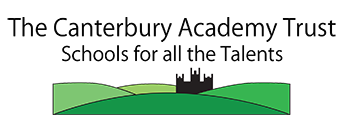
OCR A Level Computer Science
What’s it about?
This specification has been designed for students who wish to go on to higher education courses or employment where knowledge of computing would be beneficial. One can study computing and go on to a career in medicine, law, business, politics or any type of science.
The course is not about learning to use tools or just training in a programming language. Instead, the emphasis is on computational thinking. Computational thinking is a kind of reasoning used by both humans and machines. Thinking computationally is an important life skill.
Entry Requirements:
We would recommend grade 6 at GCSE in computing and a grade 6 at GCSE in mathematics, and at least a grade 5 GCSE in English.
Contacts:
Mrs. S. Osborne – Director of Teaching and Learning
The Canterbury Academy Sixth Form
Assessment
The A Level will consist of three components, two of which will be externally marked question papers making up 80% of the qualification. The other 20% will be the coursework project, which will retain its current qualities but will be more focused, with a greater emphasis on coding and programming with a simple assessment model and marking criteria.
Course Content
Computational thinking will be at the core of the new specifications.
01 COMPUTING PRINCIPLES
This component will cover the characteristics of contemporary systems architecture and other areas, including the following:
- The characteristics of contemporary processors, input, output and storage devices
- Software and software development
- Programming
- Exchanging data
- Data types, data structures and algorithms
- Legal, moral, ethical and cultural issues
02 ALGORITHMS AND PROGRAMMING
- Elements of computational thinking
- Programming and problem solving
- Pattern recognition, abstraction and decomposition
- Algorithm design and efficiency
- Standard algorithms
Progression:
This specification has been designed for students who wish to go on to higher education courses or employment where knowledge of computing would be beneficial. One can study computing and go on to a career in medicine, law, business, engineering or any type of science.
